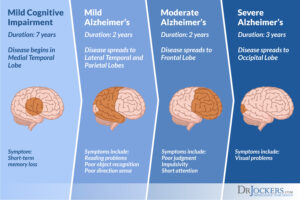As we travel through time and get older in life, time begins to take its toll on us. The body grows weaker each day and naturally isn’t able to do some of the things it used. For most, the evidence is very obvious and for some, not as much.
One of the many that happen to us as we grow older is “Memory Loss”. It’s very real and quite common among seniors. It may seem mild but entails much more than we realize. The good news is that if you understand it and know what to do, it can be managed pretty well.
In this short piece, we’ll be looking at what Memory care is, why it’s important and how we can make the best out of it.
SO WHAT IS MEMORY CARE ANYWAYS?
Well, memory care which is also sometimes called Alzheimer’s care, is a form of dementia that affects seniors as they get older. You may have probably heard of it and noticed it’s mostly associated with seniors but not sure what it is.
But before we continue, WHAT IS ALZHEIMER’S AND DEMENTIA?
Dementia is not a specific disease per se but rather a group of conditions and symptoms characterized by the impairment of two brain functions, such as memory loss and blurred judgment. It is Chronic, persistent, and progressive as it slowly eats away at the memory and cognitive abilities till the cells in charge of these functions completely die off.
Alzheimer’s, on the other hand, is just another form of dementia that affects memory, thinking, and behaviour. Its main symptoms are memory loss and confusion.
Memory care is simply how you manage memory loss and other associated illnesses in the lives of senior citizens who may likely be close to you. As mentioned earlier, it is progressive and in this case, it has different symptoms at different stages. A good understanding of these signs and symptoms will help you plan better for the future and how best to look after your more aged family members.
The diagram below shows the 4 stages of Alzheimer’s disease:

The disease can be quite tricky sometimes as it can be present without anyone ever really noticing. At what stage should memory care be administered? That’ll depend on the stage and the severity of the symptoms.
WHAT TO EXPECT IN A MEMORY CARE FACILITY
Memory care is given by health care facilities and communities. These communities are specially designed to provide services that help improve the life these senior Citizens. In these communities, residents are constantly surrounded by people they know and can constantly communicate with. They offer things like:
-
24/7 Personalized Care
At Memory care facilities like Reliable Oaks, there are certified and well-trained staff that are constantly there to give your loved ones direct personal care and assistance to help boost their confidence and keep them happy. They build personal relationships that go beyond work and make sure they understand the needs of seniors living with the illness.
-
Memory enhancing activities
Memory care facilities offer a wide variety of social and brain-enhancing activities like Bible studies, mild brain games, organized Games, escorted day trips, fitness classes, etc. These activities help to boost confidence and improve residents’ overall mental health.
-
24/7 Safety and Security
Memory care facilities give residents assured safety and security. The facility is built in organized and somewhat enclosed rooms that make it easy for seniors to navigate and prevent wandering. They also have things like keypads and doorbells at entrances to help staff keep track of who and who goes in and out of the facility.
-
Healthy lifestyles
Residents are also assured of very nutritious meals that are Dementia friendly and help keep them strong and agile throughout their stay. Memory care facilities also provide laundry services as well as other personal daily hygiene needs of the resident depending on the severity of the case.
-
Supportive therapy
Residents also get access to special therapeutic activities, brain games, etc designed to reduce the effects and rate of memory loss in seniors. These therapeutic therapies include Art therapy, reminiscence therapy, music therapy, occupational therapy, etc. All are designed to help compensate for gradual memory loss and cognitive decline.
Home Care OR Memory care
Determining what type of approach you want to employ in dealing with memory loss, you must be aware of the fact that fighting reality and trying to be the caregiver may be extremely tasking and life draining. You won’t be there to handle every need some of the time. Memory care facilities n the other hand are designed for just that.
And for those not too happy with the idea of “shipping” a relative to somewhere to be looked after by someone else, there’s the option for home care.
Home care is bringing all the activities done in these memory care facilities into your home. The only downside here is that it can be quite expensive and won’t afford the resident the opportunity.
So before you make your choice of what you feel will be the better option for your ward.
CAN ALZHEIMERS BE CURED?
Well, unfortunately, it can’t. It’s progressive and can only be managed. You can only slow it down or compensate for its effects on the individual.
For most, memory loss will always occur even if it’s gradually. It is somewhat inevitable. But If discovered early enough, It can be treated accordingly and still give your relatives the best possible experience they could have, even as seniors.
